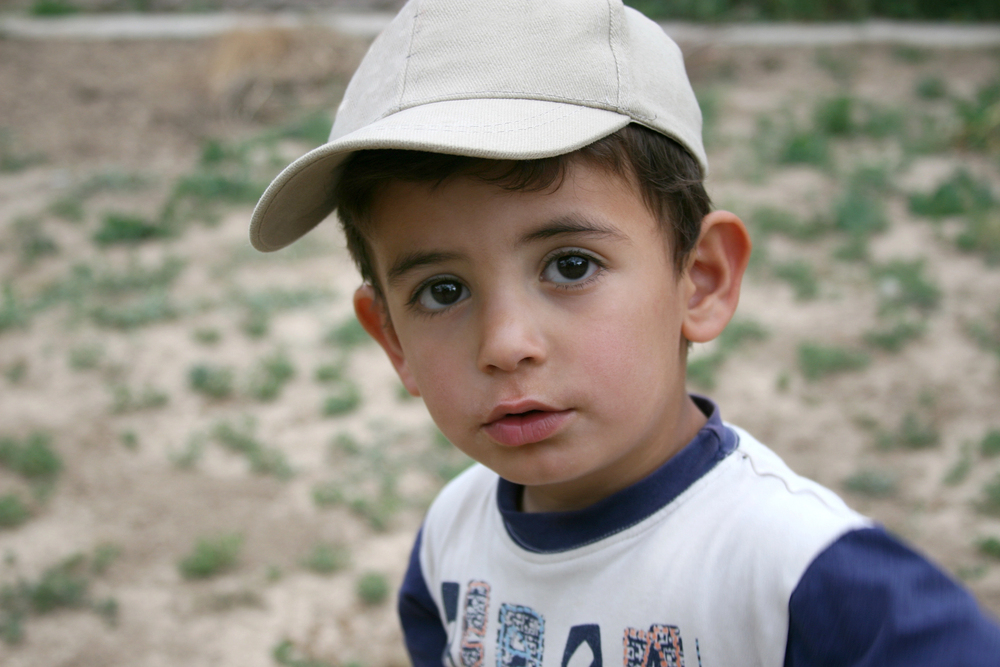Adoption from Iran
Adopting from Iran
As of November 2024, Iran is a new program under the Hopscotch umbrella with an expected learning curve as the program is further developed and becomes more established. All families entering this program must understand that they are considered pilot cases and bring patience and flexibility to the process. Iran prohibits the use of a Foreign Supervised Provider or proxy to assist or act on behalf of the prospective adoptive parent(s). Therefore, families will act on their own behalf under the close supervision of Hopscotch. Families that fail to work closely in tandem with Hopscotch can expect to be terminated.

Children Eligible for Guardianship

Boys and girls from infancy to less than 12 years of age who are relatively healthy or have medical/developmental diagnoses can be placed through this program. Family and prenatal/birth histories will be scant for almost all referrals and medical histories will often begin at placement of the child into the child welfare system.
Our agency does not work with privately arranged adoptions between parties, which includes expectant mothers identified by prospective adoptive parents. Legal and ethical concerns regarding child trafficking and child buying preclude us from accepting such cases.
Families wishing to complete a kinship adoption of a child related to them must understand that the child must meet the USCIS definition of orphan and that not every proposed kinship case will be viable. We will assess each case individually.
Eligible Applicants

Childless, heterosexual couples of Shia Muslim faith married for at least five years and with one spouse at least 30 years of age can adopt from Iran. The prospective adoptive father must have Iranian citizenship or Iranian/US dual citizenship. At least one spouse must have US citizenship. Single women of Shia faith with dual Iranian/US citizenship may adopt female children only, single men are not accepted. Single women can expect an especially strenuous process and must be prepared to face many hurdles. Muslim prospective adopters without a criminal record and in good health with sufficient financial capacity to support a child are eligible. If a couple can provide a medical record of documented infertility in at least one spouse, the court may exempt them from the five-year marriage and minimum age requirements.
Applicants must be comfortable with the languages of Iran and able to independently navigate in the country for the duration of their case. Cultural familiarity by way of Iranian and Shia heritage and having extended family in Iran is key to success.
Program and Process
After contracting with Hopscotch Adoptions as the primary adoption service provider, families will begin the home study process with a Hague-accredited agency in their state of residence. When the home study is approved by Hopscotch and finalized, families will submit their application for I-600A approval to USCIS. Home studies take 3-4 months to complete and USCIS approval currently takes upward of 4 months. Hopscotch does not permit families to accept the referral of any Iranian child prior to receipt of I-600A approval.
While awaiting USCIS adjudication, families will collect their dossier documents as instructed by Hopscotch and complete the required training and education. Once the dossier is complete, including I-600A approval, a family may travel Iran to proceed with the referral process.
Guardianship cases from Iran are overseen by Behzisti, Iran’s Welfare Organization, at the national level and handled at the provincial level once a child has been identified. Families may file their initial applications with Behzisti prior to dossier completion but cannot accept a referral until authorized to do so by USCIS via I-600A approval.

Once in Iran and matched with a child that the family wishes to pursue, the court will grant temporary custody for a six-month probationary period. During this supervised time both the Iranian child welfare professionals and the family have the right to terminate the placement. While it is possible that the court may waive the probationary period, there can be no guarantee and families must be prepared to have at least one parent remain in Iran consistently once a child has been placed into their temporary custody. If intending to seek full guardianship of the child, families must have the child’s information evaluated by a US-based international adoption medical specialist and participate in a referral specific counseling call with a Hopscotch social worker prior to taking guardianship.
Upon conclusion of the custody period, families will petition the court for a full guardianship. Once the guardianship process has concluded and all necessary documents have been submitted to Hopscotch in original and certified translation, we will prepare a family’s I-600 for submission to the US embassies in Turkey or Abu Dhabi. Families will submit their I-600 packets to the embassy of their choice and await instructions for the embassy medical exam and visa interview in either location. Once the embassy has granted a visa, families will return to the US with their child.
Families must understand that Hopscotch does not have a Foreign Supervised Provider in Iran and that they will be representing themselves for the steps in the official process. Hopscotch does not arrange for lodging, transportation, translations, legal representation at the local level, or any other in-country services for our client families.
Mandatory post-placement/post-adoption reporting must be completed per the requirements outlined here. In addition, families must finalize their adoptions in their states of residence before they can receive their child’s Certificate of Citizenship. Obtaining a child’s US citizenship is of the highest importance and should be prioritized by all families upon return to the US.
The Country
The Islamic Republic of Iran, also known as Persia, is a country located in Western Asia. One of the most mountainous countries in the world, Iran has a multi-ethnic population of roughly 90 million people who are predominantly Muslim and speak primarily Persian, the country’s official and national language. Iran is home to one of the world’s oldest continuous major civilizations, with historical and urban settlements dating back to 4000 BC. Today, Iran uses a form of Sharia law as its legal system combined with elements of European Civil law.
Top Causes of Death in Iran
According to the National Library of Medicine, the top causes of death in Iran are recorded as cardiovascular diseases, motor vehicle accidents, cancers, intentional and unintentional injuries. Most of years of life lost were due to motor vehicle accidents, cardiovascular diseases and cancers, intentional and unintentional injuries, respectively. 22 CFR 96.48 (c)(2).
Fees
Contact Hopscotch Adoptions directly to request a fee schedule.
Recommended Reading & Media
NON-FICTION
(2019) Iran: A Modern History by Abbas Amanat
(2021) Epic Iran: 5000 Years of Culture by Ina Sandmann
(2021) America and Iran: A History 1720 to Present by John Ghazvinian
(2022) Cooking in Iran: Regional Recipes and Kitchen Secrets by Najmieh Batmanglij
The Essential Rumi, New Expanded Edition (2004) Translated by Coleman Banks
FICTION
(2020) The Stationary Shop by Marjan Kamali
(2024) The Lion Women of Tehran by Marjan Kamali
CHILDRENS BOOKS
(2023) Baba’s Gift: A Persian Father’s Love of Family by Ariana Shaheen Amini & Christina Mahin Amini
(2019) My Grandma and Me by Mina Javaherbin
(2019) The Little Black Fish by Samad Behrangi
(2010) The Secret Message by Mina Javaherbin *A Rumi Retelling
(2011) Arash the Archer: A Story from Ancient Persia by Shahriar Bourbour *Middle Grade
(2018) My Mother’s Persian Stories: Folk Tales for All Ages in English & Farsi by Saeid Shammass & Shaunie Shammass
MOVIES/TV
(2024) Intoxicated by Love
(2018) PBS Frontline: Our Man in Tehran
(2014) Anthony Bourdain Parts Unknown: Iran
(2024) My Favourite Cake